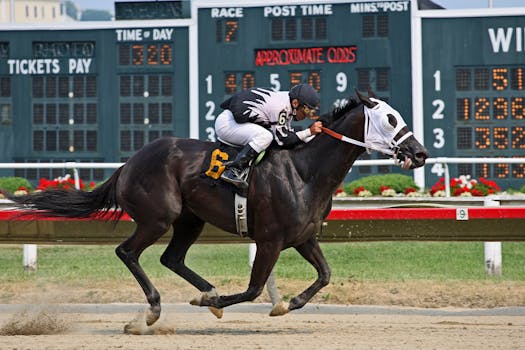The Impact of Overround in Betting: A Comprehensive Discussion
When engaging in betting, understanding the concept of overround is crucial for both novice and seasoned gamblers. This article explores the impact of overround in betting, providing a detailed analysis of how it affects betting odds and the potential outcomes for bettors.
Understanding Overround in Betting
Overround, also known as vig, vigorish, juice, or the bookmaker's margin, is essentially the way bookmakers make a profit on every bet placed, regardless of the outcome. In simple terms, it is the percentage that a bookmaker charges as a service fee for accepting a bet. The presence of overround means that the total probability implied by the odds offered will exceed 100%, indicating that the bookmaker has an edge over the bettor.
For example, in a perfectly balanced book in a theoretical fair market without overround, a coin toss would be offered at even odds for both heads and tails (2.00 in decimal odds, or +100 in American odds). However, with overround, the odds might be reduced to 1.90 for both outcomes, implying a total book of 105.26%. This extra 5.26% represents the bookmaker's edge.
Approaches to Managing Overround
Bookmakers use different strategies to set their overround, and understanding these can help bettors make more informed decisions.
- Dynamic Overrounds
- Fixed Overrounds
- Pros of Dynamic Overrounds
- Potentially more competitive odds for high-profile events.
- Attracts a larger volume of bets due to better odds.
- Cons of Dynamic Overrounds
- Odds and margins can be unpredictable, which might confuse less experienced bettors.
- Lower-profile events might have significantly higher overrounds, discouraging betting on these events.
- Pros of Fixed Overrounds
- Greater consistency in betting odds across different events.
- Easier for bettors to understand and predict the bookmaker’s margin.
- Cons of Fixed Overrounds
- May result in generally less competitive odds compared to dynamic models in some cases.
- Can deter bettors from engaging with less popular events.
Some bookmakers adjust their overround depending on the market and the volume of bets. For high-profile events with lots of betting activity, such as the Super Bowl or the FIFA World Cup finals, bookmakers might offer lower overrounds because the high volume compensates for the lower margin.
Other bookmakers might apply a fixed overround for all events, regardless of their popularity or the volume of bets. This approach provides consistency but can sometimes result in less competitive odds compared to dynamic pricing models.
Advantages and Disadvantages of Overround Strategies
Each approach to managing overround has its pros and cons.
Practical Examples of Overround Impact
Consider two bookmakers offering odds on the same soccer match between Team A and Team B. Bookmaker 1 uses a dynamic overround and offers odds of 1.95 for both teams, resulting in an overround of about 102.56%. Bookmaker 2 uses a fixed overround and offers odds of 1.90 for both teams, resulting in an overround of 105.26%.
A bet of $100 on Team A with Bookmaker 1 would return $195 if Team A wins, while the same bet with Bookmaker 2 would return $190. The difference in potential payout reflects the impact of the overround strategy employed by the bookmakers.
Conclusion: Navigating Overround in Betting
Understanding and navigating the impact of overround is essential for any bettor looking to maximize their potential returns. By choosing bookmakers with more favorable overrounds and understanding the dynamics behind these figures, bettors can enhance their betting strategy.
Whether you are a casual bettor or a serious gambler, always consider the overround as a key factor when placing your bets. Remember, the lower the overround, the better the odds are for you as a bettor. Choose wisely and bet responsibly.
For more insights into betting strategies and understanding odds, keep exploring and learning. Happy betting!

.png)





